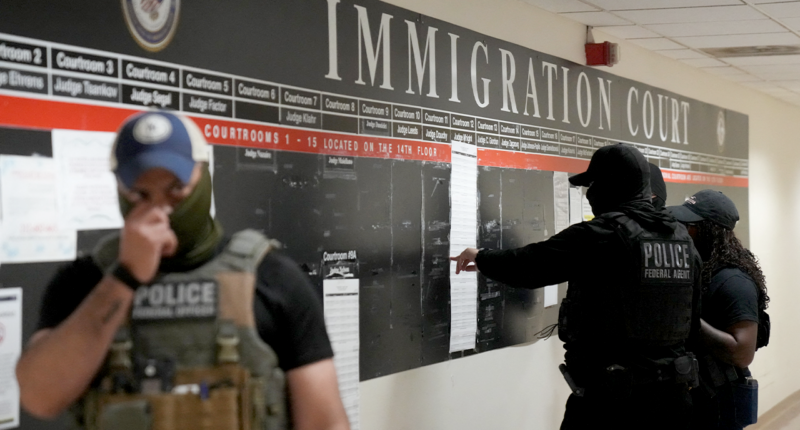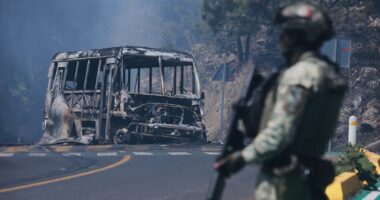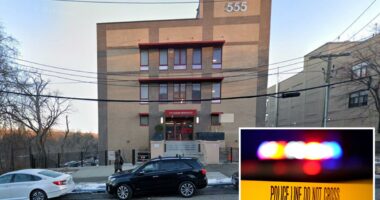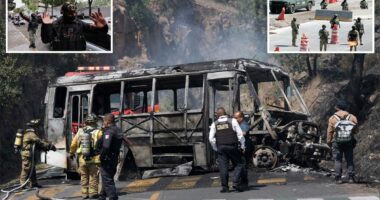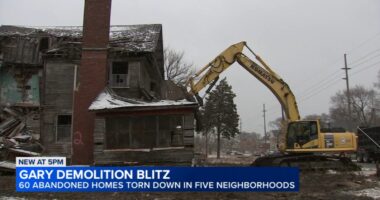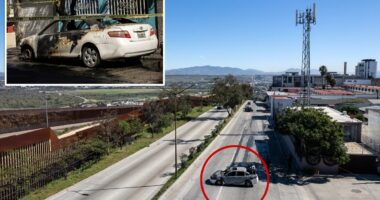Share this @internewscast.com
On Wednesday, a judge in Chicago issued a directive preventing Immigration and Customs Enforcement (ICE) from conducting arrests at Cook County courthouses. This decision arises from concerns about potential “fear or obstruction” that might hinder those suspected of being in the country illegally from attending court sessions.
Officials in this Midwestern sanctuary city, which has been a focus of the Trump administration’s stringent immigration policies, indicated that individuals were steering clear of court due to fears of being apprehended.
The directive explicitly forbids immigration officials from carrying out civil arrests of any “party, witness, or potential witness” during their court appearances.
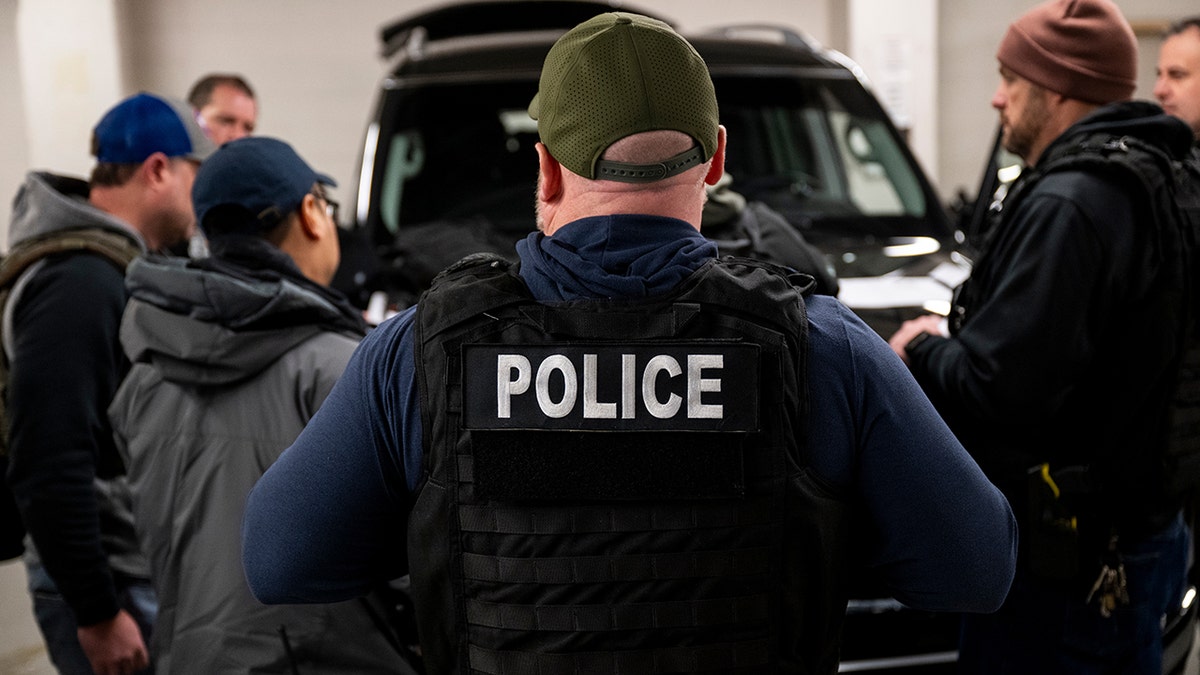
In Chicago, ICE agents, along with members of other federal law enforcement bodies, participate in a pre-enforcement briefing.
Cook County Circuit Chief Judge Timothy Evans emphasized that justice relies on ensuring everyone can attend court without experiencing fear or obstruction, a sentiment reflected in his ruling.
In June, the Trump administration initiated a campaign aimed at detaining undocumented immigrants following their asylum hearings.
The tactic stirred controversy, with critics claiming migrants seeking legal citizenship would be less likely to show up to hearings, and those arrested after hearings may not have additional criminal histories.
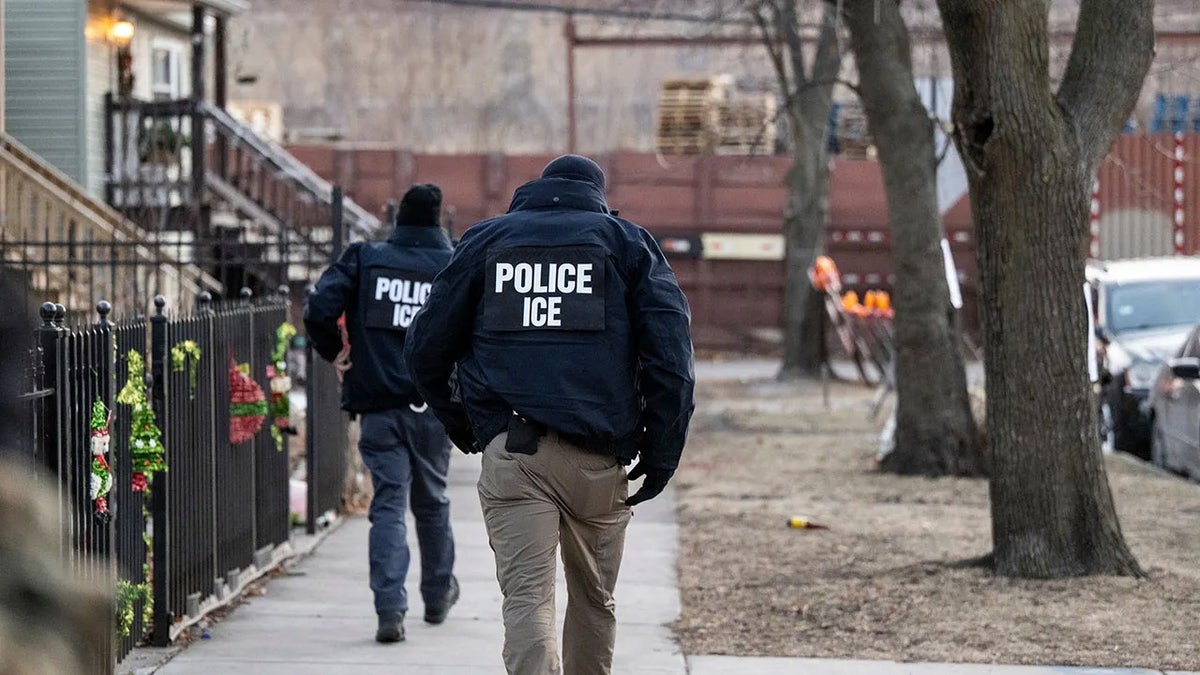
ICE agents walk down a street during a multi-agency targeted enforcement operation in Chicago. (Christopher Dilts/Bloomberg via Getty Images)
Videos of the arrests went viral on social media, with some accusing ICE of “kidnapping” migrants.
In September, the ACLU and immigrant rights groups filed a lawsuit in New York City regarding the practice, though a federal judge ultimately ruled there was not enough evidence to suggest ICE’s courthouse arrest policy changes were “unexplained, arbitrary and capricious” after 2021 guidance allowed arrests at or near immigration courts.
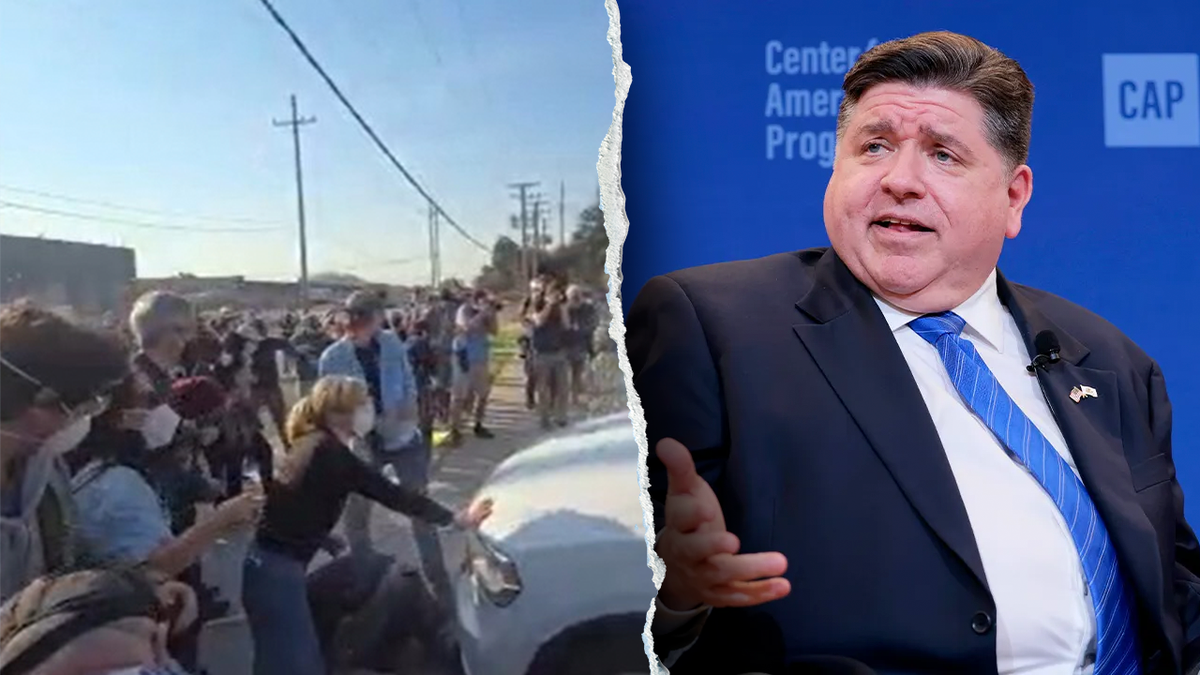
The Department of Homeland Security is criticizing Illinois Democratic Gov. J.B. Pritzker, right, for not being proactive in responding to a chaotic anti-ICE protest in Broadview, Ill. (Anna Moneymaker/Getty Images and Jon Stegenga via Storyful)
“Every day, our members are forced to choose between being kidnapped and/or put into expedited removal or risking deeper legal consequences because they’re too scared to go to court,” Diana Konaté, deputy executive director of Policy and Advocacy at African Communities Together, wrote in a statement published by the ACLU related to the New York City case.
“This is exactly what the administration intended—for people to be so fearful of enforcement that they forfeit the very resources and systems in place to protect them,” Konaté added.
Some judges have fought back against the policy, allegedly aiding migrants’ escape after hearings.
